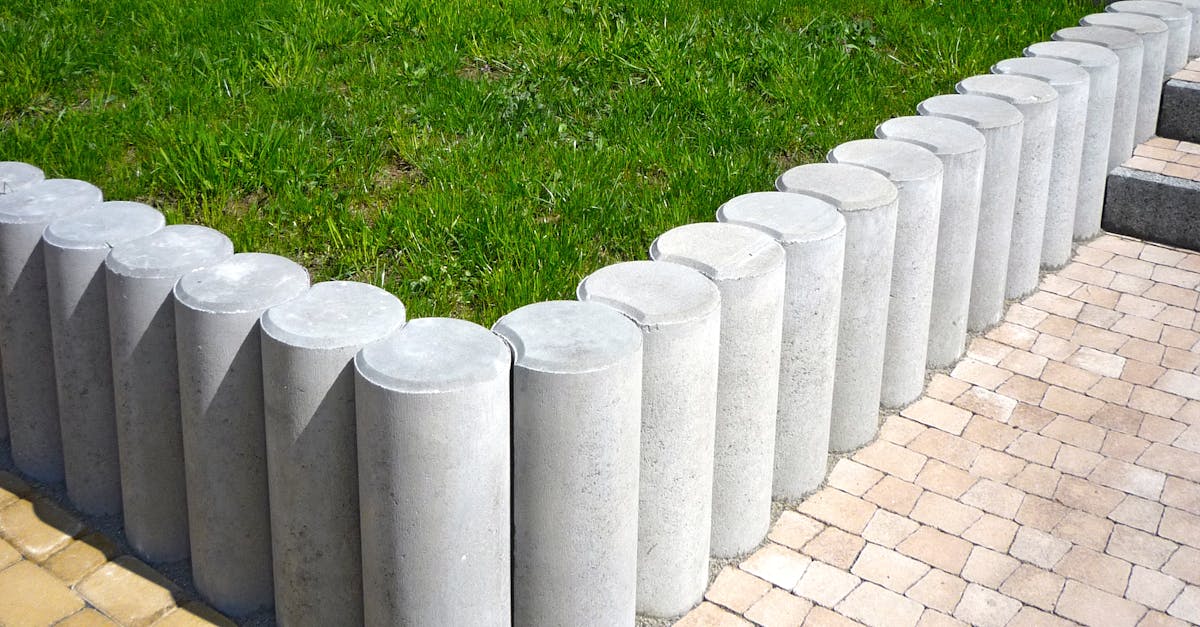
Table Of Contents
Mulching for Maintenance
Mulching plays a crucial role in maintaining the health and beauty of your garden. When it comes to Plant Installation in Greater Sudbury, applying mulch offers numerous benefits. One of the key advantages of mulching is its ability to help retain moisture in the soil. By creating a protective barrier over the soil, mulch helps reduce water evaporation, ensuring that your plants receive an adequate amount of hydration. Additionally, mulch also aids in suppressing weed growth by blocking sunlight from reaching weed seeds, thus inhibiting their germination and growth.
In addition to moisture retention and weed suppression, mulch also contributes to the overall health of your plants by insulating the soil, regulating soil temperature, and reducing erosion. These factors are particularly important in regions like Greater Sudbury, where extreme weather conditions can impact plant growth. By applying a layer of mulch around your plants, you can help create a more stable and favourable environment for them to thrive. Remember to replenish the mulch periodically to maintain its effectiveness and ensure continued benefits for your garden.
Apply mulch to help retain moisture and suppress weeds
Plant Installation in Greater Sudbury involves various steps to ensure the health and vitality of your newly planted greenery. One essential aspect of maintaining your garden is to apply mulch. Mulching offers multiple benefits such as retaining moisture in the soil, which is crucial for the optimal growth of plants in the Canadian climate. Additionally, a layer of mulch helps in suppressing weeds, thus reducing the need for frequent weeding sessions that can be time-consuming and tiring for many gardeners.
When selecting mulch for your garden in Greater Sudbury, opt for organic materials such as wood chips, bark, or compost. These natural options not only help with moisture retention and weed control but also provide nutrients to the soil as they gradually decompose. Remember to spread the mulch evenly around the base of your plants, leaving some space around the stems to prevent moisture-related issues. By incorporating mulching as part of your plant installation process in Greater Sudbury, you can significantly improve the overall health and appearance of your garden while minimizing maintenance efforts.
Fertilizing Guidelines
Plant Installation in Greater Sudbury requires careful attention to fertilizing guidelines to promote healthy growth and vibrant blooms. When selecting fertilizers, opt for organic options to feed the soil with essential nutrients without harsh chemicals. Following recommended dosages is crucial as over-fertilizing can cause more harm than good, leading to nutrient imbalances and potential damage to the plants. By adhering to the instructions provided on the fertilizer packaging, you can ensure that your plants receive the correct amount of nourishment needed to thrive in the specific soil conditions of Greater Sudbury.
Organic fertilizers not only nurture the plants but also improve soil structure and promote beneficial microorganisms essential for overall plant health. Additionally, organic fertilizers have a more sustainable impact on the environment, aligning with eco-friendly practices for gardening in Greater Sudbury. By incorporating organic fertilizers into your plant care routine, you can foster a balanced ecosystem in your yard and contribute to the long-term health of your garden.
Use organic fertilizers and follow recommended dosages
Use of organic fertilizers can significantly benefit the health and growth of plants in your yard. These fertilizers, derived from natural sources, provide essential nutrients without the use of harsh chemicals that may harm the environment. It is important to follow the recommended dosages when applying organic fertilizers to prevent nutrient imbalances and ensure the optimal development of your plants. In Greater Sudbury, where plant installation requires a thoughtful approach due to the local climate, choosing organic fertilizers can contribute to a more sustainable and thriving garden.
By following the specified guidelines for organic fertilizers, you can support the long-term health of your plants while minimizing the negative impact on the ecosystem. In Plant Installation in Greater Sudbury, this conscientious approach to fertilizing can lead to healthier soil composition, improved water retention, and enhanced overall plant resilience. Moreover, organic fertilizers tend to release nutrients more gradually, promoting steady growth and reducing the risk of nutrient runoff. As you cultivate your yard in Greater Sudbury, embracing organic fertilizers and adhering to recommended usage instructions can foster a flourishing outdoor space that is both beautiful and environmentally responsible.
Pruning and Trimming Tips
When it comes to maintaining a vibrant and healthy garden, proper pruning and trimming techniques are essential. For residents engaging in Plant Installation in Greater Sudbury, regular trimming of dead or overgrown branches is imperative to promote healthy growth. By removing these branches, you not only enhance the aesthetic appeal of your garden but also allow for better air circulation and sunlight penetration, contributing to the overall well-being of your plants.
Moreover, remember to use sharp and clean tools when pruning to prevent any damage or infections to the plants. It is also beneficial to prune during the appropriate season for each type of plant to ensure optimal growth and blooming. Through these simple yet effective pruning and trimming practices, residents can maintain a flourishing garden that adds beauty and charm to their outdoor spaces in Greater Sudbury.
Regularly trim dead or overgrown branches for healthy growth
Regularly trimming dead or overgrown branches is essential for maintaining the overall health and appearance of your plants and trees. By removing these unhealthy parts, you allow the plant to redirect its energy towards new growth and development. Failure to regularly trim can result in the plant wasting precious resources on sustaining dead branches at the expense of new, healthy growth. The process of pruning also helps to improve airflow and sunlight penetration within the plant, which are crucial factors for optimal growth and productivity. For residents partaking in Plant Installation in Greater Sudbury, this practice is key to ensuring the long-term health and vigour of their outdoor vegetation.
Moreover, trimming dead or overgrown branches can prevent potential safety hazards in your garden or yard. Weak or dead branches are more prone to breaking off during adverse weather conditions, which can pose a risk to both property and individuals. By staying proactive and regularly inspecting your plants for any signs of decay or overgrowth, you can mitigate these risks and create a safer outdoor environment. For individuals embarking on Plant Installation in Greater Sudbury, this simple yet crucial task can contribute significantly to the longevity and resilience of their green spaces.
FAQS
How often should I water newly planted plants in my yard?
Newly planted plants should be watered daily for the first week, then gradually transition to a more regular watering schedule based on the plant's specific needs.
Is it necessary to mulch my yard after planting plants?
Yes, mulching your yard after planting plants is recommended as it helps retain moisture, suppresses weeds, and improves the overall health of your plants.
When is the best time to fertilize plants in my yard?
The best time to fertilize plants in your yard is typically in the spring when they are actively growing. Follow the guidelines on the fertilizer package for the recommended dosages.
How can I tell if my plants need pruning or trimming?
You should regularly inspect your plants for dead or overgrown branches. If you notice any, it's a good indication that pruning or trimming is needed for healthy growth.
What are the benefits of using organic fertilizers in my yard?
Organic fertilizers are beneficial for your yard as they provide nutrients to the plants in a natural and sustainable way, promoting long-term soil health and plant growth.






